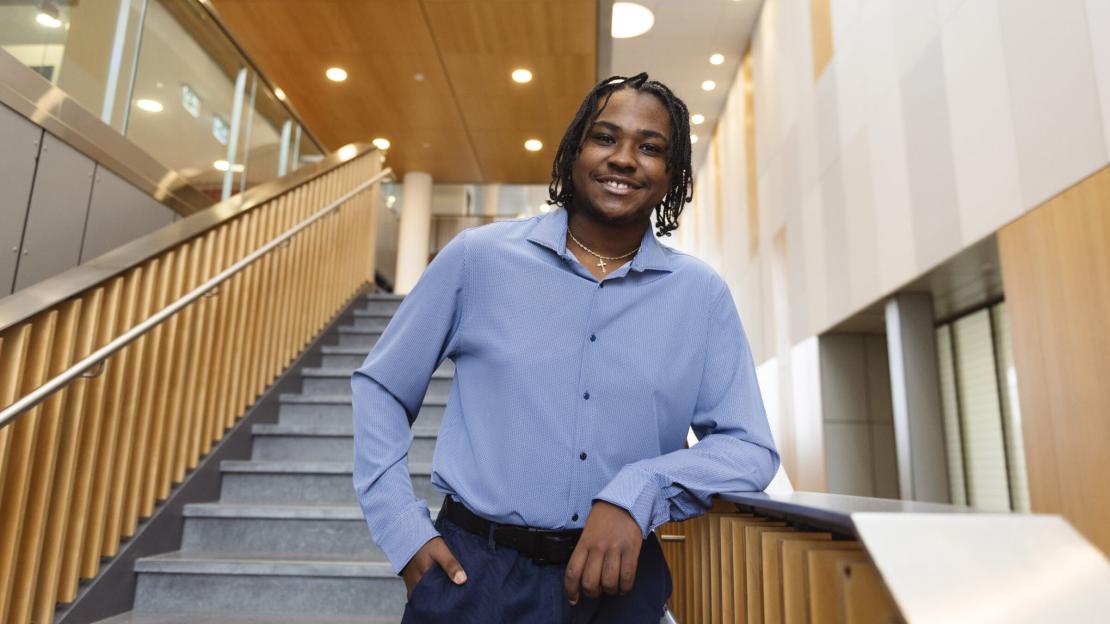In the 1960s, students marched for civil rights; in the ‘80s, they protested South African apartheid. Today, many students are calling for action on the climate crisis and social injustice, using the internet platforms they grew up with to connect with like-minded peers and rally strangers to their cause.
Like the three students profiled below, they are often motivated by personal experience. Riley Yesno, an Indigenous activist and PhD student at the University of Toronto, draws on her family’s experience to imagine a better tomorrow for Indigenous Peoples in Canada. “The work I’m doing is about my future, my siblings’ future – everybody I love,” she says.
Read below how Yesno and fellow U of T students De-Mario Knowles and Giovanni Williams are helping to move the needle – online and in the real world – on the issues that matter to them most.
As U of T Scarborough students navigate the stresses that can arise from schoolwork, the rising cost of living and our uncertain times, De-Mario Knowles wants them to know they are not alone.
A few months ago, the second-year clinical psychology student began collaborating with the university’s Health and Wellness Centre to produce The Mental Health Minute – a series of brief videos that aim to raise awareness about the department’s services. The three videos released so far explain the benefits of participating in one-on-one counselling, how to connect with a counsellor, nurse or physician; and the services available for international students.
This desire to help his fellow students was borne out of Knowles’ own journey with mental health challenges. He says he grew up “feeling like I never really belonged in any type of community.”
That changed three years ago when Knowles, who has Cree heritage, felt inspired to write a poem about the importance of discussing mental health in society and ending the stigma of mental illness. He posted it on Instagram, and it attracted private messages from friends and others saying that his poem had brought them solace and strength. “I realized that my words could actually help people feel understood,” he says. “It showed me my purpose.”
“I REALIZED THAT MY WORDS COULD HELP PEOPLE FEEL UNDERSTOOD”
This sense of wanting to advocate for improved mental health awareness and supports led Knowles to become involved with Step Above Stigma, a charity that encourages young adults to question societal norms that say they are “unworthy” and act as barriers to their mental wellness. Earlier this year, he delivered a keynote address at its community event, where he spoke about the importance of self-affirmations for success.
At U of T Scarborough, Knowles supports students in diverse ways. In the psychology department’s Authentic Learning Lab, he is the Indigenous creative development lead – a role in which he ensures that Indigenous characters, ways of life and experiences of colonialism are represented in a digital education game being developed about privilege, oppression and social justice.
Among Knowles’ role models is former U.S. first lady Michelle Obama. He particularly appreciates her insights about the importance of being vulnerable in order to meaningfully connect with others. “That resonates with me greatly,” he says. “I try to implement vulnerability in everything I do, as a way to inspire people. I realize that’s how I can connect with people on a different level.”
READ MORE AT U OF T MAGAZINE
